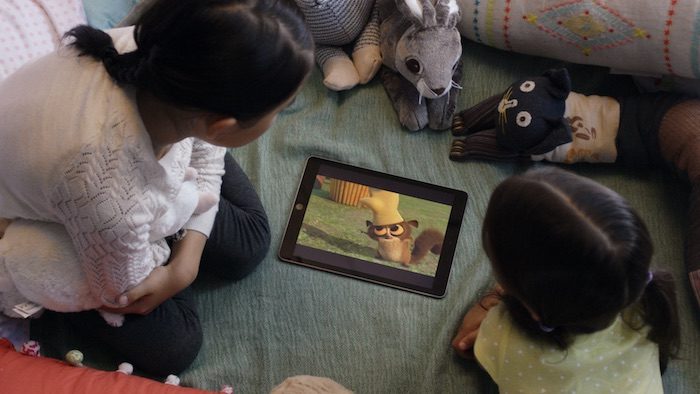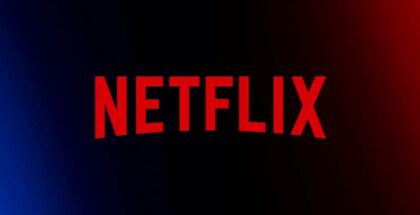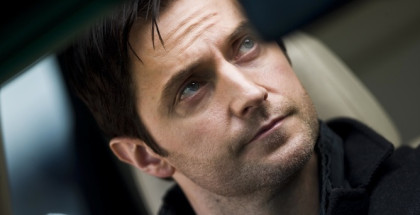Streaming services overtake pay TV for first time
David Farnor | On 18, Jul 2018
Streaming services have overtaken pay TV services in UK living rooms for the first time, new Ofcom research reveals.
There are now more UK subscriptions to Netflix, Amazon and NOW than to traditional pay TV services, the data shows, as the UK’s viewing habits undergo a major shift. Indeed, people are spending less time watching old-school telly: average daily broadcast viewing on the TV set fell by nine minutes in 2017 – and is down 38 minutes since 2012.
The findings are part of Ofcom’s Media Nations report, a comprehensive study of major trends in the UK’s television, radio and audio sectors, published today. The report highlights a competitive shift within the UK television industry, driven by the rise of the major global internet companies and the changing habits and preferences of UK audiences. With more choice for viewers than ever before, UK broadcasters are competing for viewers in an increasingly fragmented landscape.
The total number of UK subscriptions to the the big three VOD services – Netflix, Amazon Prime and Sky’s Now TV – reached 15.4 million in Q1 2018, overtaking, for the first time, the number of pay TV subscriptions, at 15.1 million. The figure includes subscriptions to multiple subscription video-on-demand services within one household: 11.1 million households (39.4%) have at least one of either Netflix, Amazon or Now TV.
At the same time, pay TV revenue has declined for the first time. Following a period of sustained growth, the UK’s pay TV providers saw a 2.7 per cent decrease in total revenue last year to £6.4bn. In contrast, the increasing number of streaming subscriptions contributed to a 28 per cent growth in online audio-visual revenues, to £2.3bn in 2017. Meanwhile, television advertising income fell by 7 per cent, to £3.9bn.
Spending by public service broadcasters is also on the decline. The BBC, ITV Channel 4 and Channel 5’s £2.5bn combined network spending on original UK-made programmes in 2017 represents a record low – and is £1bn (28 per cent) less than the 2004 peak of £3.4bn. An increase in funding from third parties towards the cost of programme-making (from £147m in 2008 to £338m in 2017 across the BBC, Channel 4 and Channel 5) has partly helped to mitigate this decline.
At the heart of all of this is shifting audience behaviour, which is encouraging the rise of VOD viewing, influencing the way content is both distributed (BBC iPlayer is increasingly releasing shows as box sets alongside linear broadcast) and produced and commissioned. The amount of time spent watching broadcast television on the TV set stood at an average of 3 hours 22 minutes a day in 2017, down nine minutes (4.2 per cent) on 2016, and 38 minutes (15.7 per cent) since 2012. The shift is most evident among children and viewers aged 16 to 34, leading to the over-65s watching four times as much broadcast television as children in 2017. Online, daily viewing time across all devices stands at 5 hours one minute, of which two-thirds (three hours 33 minutes or 71 per cent) was to broadcast content, and 1 hour 28 minutes to non-broadcast content. However, among 16 to 34-year-olds, total daily viewing time in 2017 was 4 hours 48 minutes, of which less than half (two hours 11 minutes or 46 per cent) was to broadcast content, while just under an hour per day was spent watching content on YouTube.
Sharon White, Ofcom’s Chief Executive, says: “Today’s research finds that what we watch and how we watch it are changing rapidly, which has profound implications for UK television. We have seen a decline in revenues for pay TV, a fall in spending on new programmes by our public service broadcasters, and the growth of global video streaming giants. These challenges cannot be underestimated.
“But UK broadcasters have a history of adapting to change. By making the best British programmes and working together to reach people who are turning away from TV, our broadcasters can compete in the digital age.”
The research arrives as talks are reported to have been rekindled between the BBC and ITV about teaming up to launch their own subscription streaming service to rival Netflix.




















